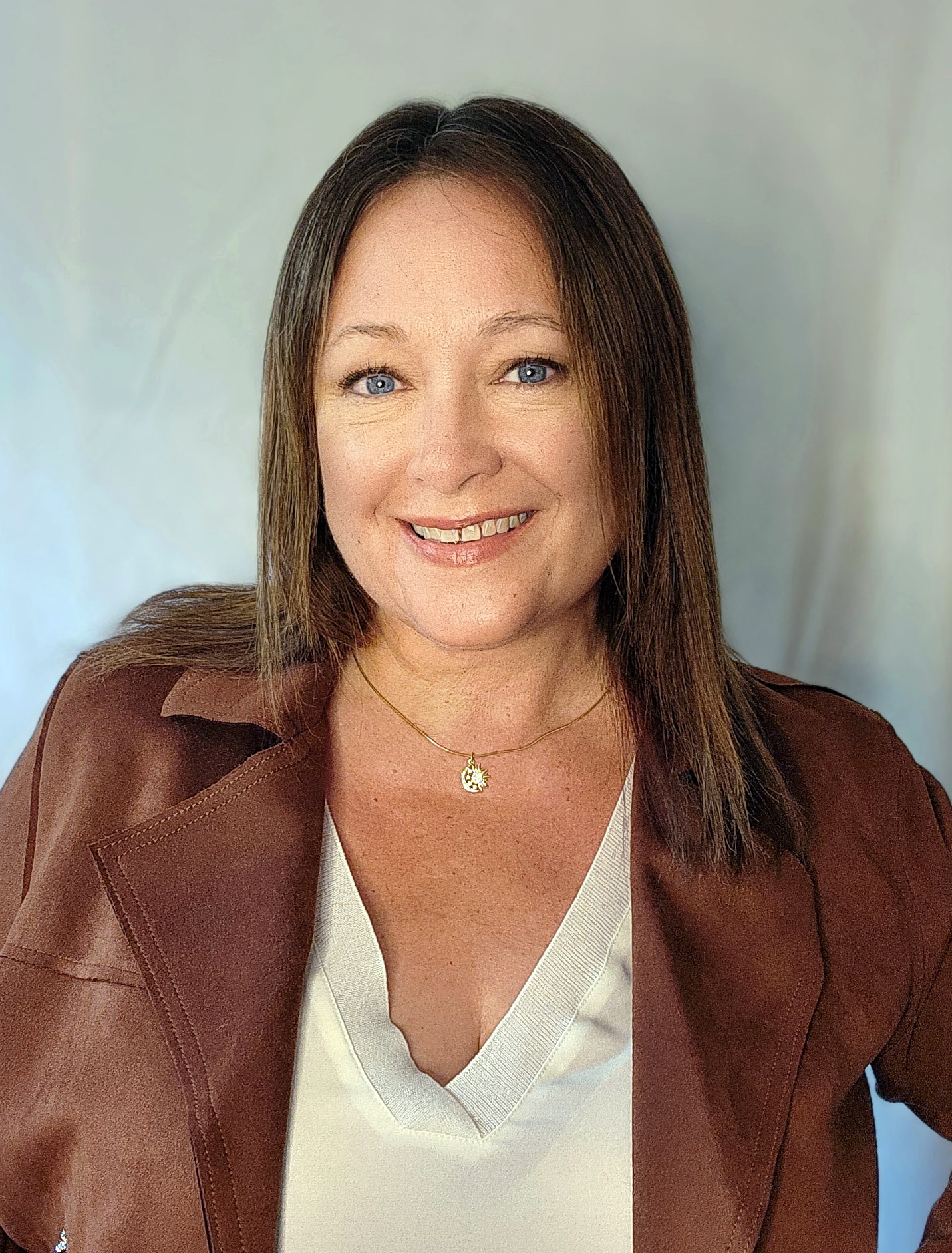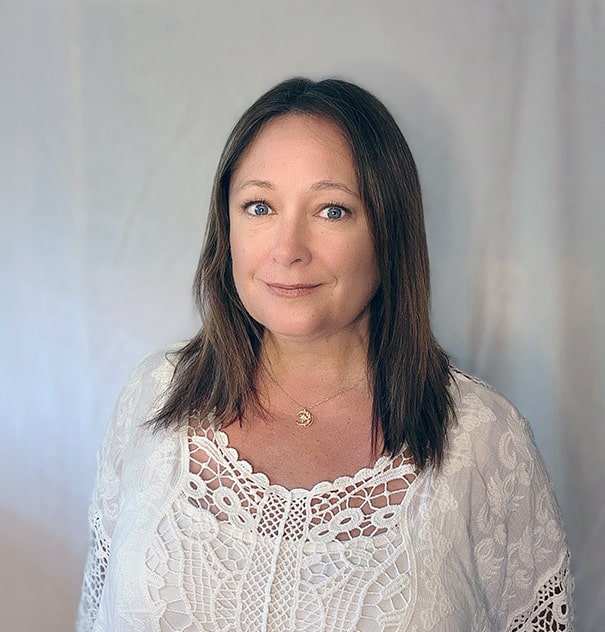
Heather Stang, MA, C-IAYT
Masters of Thanatology (Death, Dying, & Bereavement)
Certified Yoga Therapist
A different type of grief counseling
My approach to grief counseling is rooted in mindfulness, self-care, and the study of thanatology—the scientific understanding of death and bereavement—offering a compassionate, non-religious alternative for those seeking healing beyond traditional, faith-based support.
I am sensitive to the fact that everyone’s experience of grief is unique and that each person’s loss touches on personal beliefs, emotions, and perspectives that are theirs alone. Whether you come from a specific faith, no faith, or simply prefer a secular approach, this space is designed to meet you where you are.
I create an environment free from the pressure of toxic positivity and spiritual bypassing. Here, there’s no expectation to “stay positive” or “move on” before you’re ready. Instead, I believe in embracing the full experience of grief, honoring your emotions as they are, without judgment. I provide practical, mindful tools to help you face your grief authentically, allowing you to process each part of it in your own way and in your own time.
With a background in mindfulness and thanatology (the study of death, dying and bereavement), I have both the academic knowledge and the practical skills to guide you. Yet, I consider myself a lifelong student of grief, learning continually from my clients, colleagues, and friends. Each session and each story is a chance to deepen my understanding, refine my approach, and expand my empathy. Every person I work with brings their own wisdom, and I am grateful for each lesson.
I don’t use a one-size-fits-all approach; instead, I listen carefully to each client’s needs and respect the beliefs, values, and rhythms that make their healing process uniquely theirs. My goal is to walk alongside you, offering compassionate support that empowers you to process your grief, reconnect with your strength, and find moments of peace and resilience on your own terms.
Why Choose Me as Your Grief Counselor?
Client-Centered Care
Good grief therapy is structured enough to help you move forward, yet flexible enough to honor your unique grieving process. However you are shaped by cultural, relational, or attachment styles, I ensure that our work together respects your individuality. There is no one "right" way to grieve, and my approach is designed to support your personal journey.
Trusted by National Grief Support Organizations
Organizations including the Tragedy Assistance Program for Survivors (military loss), National Fallen Firefighters Foundation, and the National Hospice and Palliative Care Organization trust me to support their survivors and train their peer mentors and professional members.
Evidence-Based Practices
I hold a Master’s degree in Thanatology, specializing in death, dying, and bereavement. My commitment to staying current with the latest research and methodologies is reflected in my ongoing participation in conferences and professional training. This ensures that the support you receive is grounded in the most up-to-date, evidence-based practices.
Extensive Experience and Expertise
With over 20 years in the field, I bring a depth of knowledge and a wealth of experience to my practice. My unique approach, which combines evidence-based grief therapy with mindfulness, yoga, and self-care strategies, is recognized in The Handbook of Grief Therapies and by leading organizations in grief counseling.
Practical and Actionable Support
While validating your feelings is essential, my approach goes beyond just talking. I provide practical tools and techniques that you can use to reduce suffering and build resilience. My goal is to equip you with actionable strategies that support your healing and help you regain a sense of control over your life.
A Safe and Compassionate Therapeutic Relationship
I create a safe space where you can explore your grief without fear of judgment or pressure to "move on." My practice is free from toxic positivity and spiritual bypassing, and is trauma-sensitive, ensuring that your emotional and psychological well-being is always the priority.
My Therapeutic Approach
My therapeutic approach to grief counseling is deeply informed by both professional expertise and my personal journey through grief. Having experienced loss firsthand, I understand the profound and often overwhelming impact it can have on every aspect of your life. This personal experience fuels my commitment to providing compassionate, tailored support through grief therapy that truly meets you where you are. I believe that healing from loss is not a one-size-fits-all process, and I am dedicated to guiding you through your unique grief journey with empathy, understanding, and proven techniques.
In our grief counseling sessions, I integrate mindfulness-based grief therapy with creative and reflective practices, such as journaling and expressive arts. These methods are powerful tools that allow you to engage with your grief in a way that goes beyond traditional talk therapy. Journaling, for instance, offers a private space where you can freely explore your emotions, track your healing progress, and uncover deep insights that might be difficult to express verbally. This practice can be particularly beneficial in grief therapy, as it helps you process complex emotions at your own pace and on your own terms.
Expressive arts play a crucial role in my approach to grief therapy as well. Whether through drawing, painting, or other creative forms, these activities provide a non-verbal outlet for your grief. They allow you to express and release emotions that may be too overwhelming or difficult to put into words. Engaging in these creative practices can help you connect with your inner self, offering a sense of relief and a new perspective on your grief. This aspect of grief counseling is especially valuable for those who find it challenging to articulate their feelings or who prefer a more hands-on approach to their healing.
The mindfulness-based grief therapy I offer is holistic, addressing not only the emotional aspects of grief but also the physical and spiritual dimensions of your experience. Mindfulness practices are woven throughout our sessions, helping you stay grounded in the present moment and offering tools to manage the intense emotions that often accompany grief. By focusing on mindfulness, you can learn to observe your thoughts and feelings without judgment, creating space for healing and the emergence of inner wisdom. This approach empowers you to navigate your grief with greater resilience, helping you to find moments of peace even in the midst of profound sorrow.
These techniques and practices reflect the strategies I’ve developed in my books, Living With Grief, Navigating Loss, and my guided journal, From Grief to Peace. My approach to grief therapy is designed to be both structured and flexible, providing a framework that supports your healing while allowing you to explore your grief in a way that feels right for you. By engaging in these creative and mindful processes, you can build resilience, find new ways to relate to your grief, and ultimately rediscover meaning and purpose in your life. Through this comprehensive approach to grief counseling, I aim to support you in not only surviving your loss but also in finding a path to thriving in the life that lies ahead.

